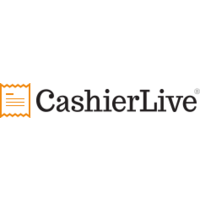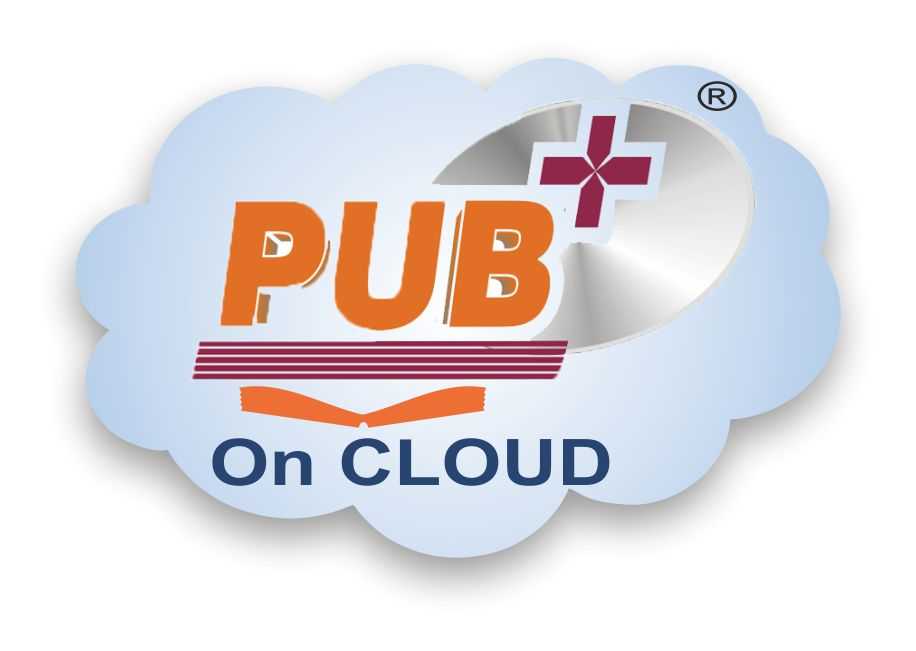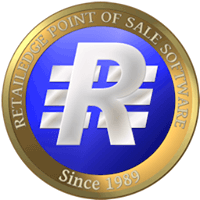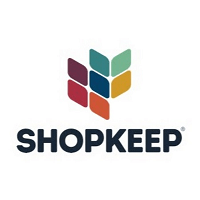Yes, most bookshop software is designed to be accessible from numerous devices and platforms. This means you can use it on a computer, smartphone, or tablet, and it works with a variety of operating systems, including Windows, Mac, iOS, and Android. This enables you to manage your bookshop inventory, sales, and customer data from anywhere, using any device.
List of Best Bookstore Software
Cashier Live Stores robust reporting capabilities allow for streamlined bookkeeping, sales analysis, and purchase tracking. Integration with your POS system simplifies sales management. Take advantage of customer loyalty tracking to create personaliz...Read More Cashier Live Store
PUB+ on Cloud accounting, invoicing, and inventory software tailored for book trade experts like publishers, distributors, and bookstores. This all-in-one solution offers vital features like royalty monitoring, branch supervision, point-of-sale funct...Read More PUB+ on Cloud
ARBA Retail Systems is a leading provider of cutting-edge solutions for traditional bookstores. Our software enables the implementation of self-service kiosks, simplifying the checkout process and boosting transaction speed. It also allows for custom...Read More ARBA Retail Systems
InventoryPlus is a accounting solution that offers a user-friendly barcode billing POS system. With our software, you can easily create and print custom barcodes on any printer for efficient invoicing. Our offline billing function simplifies the proc...Read More InventoryPlus
HDPOS smart for bookstores is a Point of Sale and inventory management software that offers a user-friendly and comprehensive solution. With advanced features at an affordable price, say goodbye to expensive options and streamline your billing proces...Read More HDPOS smart For Book Store
Candela RMS is a on-premise solution for efficient retail and inventory management. Designed for single stores or retail chains, this dynamic software streamlines stock management and improves customer satisfaction. With Candela RMS, you can bid fare...Read More Candela RMS
ScoutIQ - the perfect solution for launching your side hustle or expanding your existing business! Its as easy as scanning a book cover, and ScoutIQ instantly locates profitable books to sell on Amazon. No more guesswork - simply click, list, and sta...Read More ScoutIQ
BookMine solution for all your bookstore needs. This robust software offers advanced features such as inventory management, point-of-sale system, and work order generation. Our easy-to-use web-based POS system simplifies the sales process, while cust...Read More BookMine
Booklog streamlines your bookstore operations, making your job easier and less stressful. Automatically generate purchase orders and update your inventory from one convenient dashboard. Take advantage of its history tracking and discount application...Read More Booklog
Celerant Command Retail is a retail management solution that enables businesses to effectively oversee all retail operations in real-time. This powerful software offers a variety of features including point of sale, back office sales, inventory manag...Read More Celerant Command Retail
CirclePOS - a specialized software designed to optimize bookstore management. This advanced system offers a dedicated platform for both new and used book sales, as well as online selling capabilities. By enabling real-time tracking and automated cust...Read More CirclePOS
Basil Bookseller - the ideal solution for simplifying your sales and purchasing procedures. This innovative software offers an efficient electronic sales order system, ensuring fast and smooth operations. Personalize discounts and promotions for your...Read More Basil Bookseller
KORONA POS is a point of sale solution for a variety of businesses including retailers, museums, theme parks, wineries, and QSRs. Our software offers a transparent pricing model with no hidden fees or penalties, and we do not require any contracts. P...Read More KORONA POS
BookTrakker solution for seamless online book selling. Say goodbye to delayed payments, risky transactions, and unreliable delivery tracking. Our powerful software comes equipped with a wide range of features to easily handle these tasks. With BookTr...Read More BookTrakker
RetailEdge is a retail point-of-sale (POS) software that provides a wide range of advanced features for optimizing your business operations. Streamline sales and customer management, effortlessly track inventory, and easily process credit card paymen...Read More RetailEdge
Epos Now is a cloud-based retail pos system that combines simplicity and efficiency for your business. Enjoy a seamless operation with our complimentary 30-day trial and discover the full potential of our system. Join thousands of satisfied businesse...Read More Epos Now
ShopKeep is a POS system specifically designed to simplify inventory management. Our solution integrates Bluetooth barcode scanners, enabling effortless tracking of stock levels. With our portable devices and printer, inventory updates can be made se...Read More ShopKeep
Learn More About Bookstore Software
- What Is Bookstore Software?
- What Are The Recent Trends In Bookstore Software?
- Benefits Of Using Bookstore Software
- Important Factors To Consider While Purchasing Bookstore Software?
- What Are The Key Features To Look For In Bookstore Software?
- Why Do Businesses Need Bookstore Software?
- How Much Time Is Required To Implement Bookstore Software?
- What Is The Level Of Customization Available In Bookstore Software?
- Which Industries Can Benefit The Most From Bookstore Software?
- Conclusion
What Is Bookstore Software?
bookshop software is a complete application tailored exclusively to the demands of bookshop owners and managers. It is a digital solution that enables booksellers to streamline their everyday operations, improve efficiency, and eventually enhance sales. At its core, bookshop software serves as a hub for inventory management, POS transactions, customer data, and analytics. It allows retailers to keep and arrange their book inventory, monitor sales and profits, and manage client information all in one location.
However, the benefits of adopting bookshop software do not end there. This program, which includes advanced capabilities such as barcode scanning, automatic reordering, and multi-store administration, helps bookstores stay on top of their inventory levels and swiftly restock stock when needed. Furthermore, bookstore software provides marketing and promotional features that allow retailers to reach a broader audience.
From establishing targeted email advertising to launching online specials, this software assists booksellers in expanding their reach and attracting new customers. In addition to these advantages, bookshop software frequently interfaces with accounting software, making it simpler to track and manage finances. It also provides significant insights through detailed reports and analytics, helping bookstore owners have a better understanding of their company's performance and find areas for development.Investing in bookshop software can transform any bookseller's business.
It not only streamlines day-to-day operations, but also assists bookstores in adapting to the ever-changing retail landscape and remaining competitive in the market. With its time-saving and efficiency-enhancing capabilities, bookshop software is an essential tool for any serious bookseller trying to expand their business.
What Are The Recent Trends In Bookstore Software?
Because of technological advancements, bookstores have undergone substantial changes in how they operate and manage their businesses in recent years. This has also resulted in new trends in bookstore software, which are transforming the sector. In this buyer's guide, we'll look at the most recent trends in bookshop software to help you make an informed decision about purchasing software for your store.
1) Cloud-based Systems: One of the most visible trends in bookstore software is the shift to cloud-based systems. These sorts of software are hosted on remote servers and accessible via a web browser. This eliminates the need for pricey hardware and enables booksellers to run their businesses from anywhere, at any time. Cloud-based systems also provide seamless connection with other applications and fast scalability, making them a popular alternative for booksellers.
2) Data Analytics: In the digital world, data reigns supreme, and bookshops are no different. The most recent development in bookshop software is the use of data analytics to examine customer behavior, sales patterns, and inventory management. This enables retailers to make data-driven decisions and provide a more tailored buying experience to their customers. Bookstores can use data analytics to determine their most profitable products and alter their inventory accordingly.
3) Mobile Point Of Sale: With the proliferation of mobile devices, bookstores are increasingly relying on mobile point of sale (POS) systems to enhance the consumer experience. These systems allow booksellers to accept payments anywhere in the store, reducing the need for customers to line up at the checkout. Mobile POS also provides booksellers with real-time access to sales data and inventory, increasing the overall efficiency of the bookstore.
4) E-commerce Integration: In today's digital economy, bookstores must have an online presence. This has resulted in more e-commerce integration in bookstore software. With e-commerce integration, booksellers can easily sell their products online and manage their inventory from a single system. This not only expands their consumer base, but also makes buying more convenient for customers.
5) AI And Automation: Artificial intelligence (AI) and automation have enormous promise in the bookshop sector. AI can improve customers' overall retail experience by automating repetitive processes and giving personalized book recommendations. Additionally, AI-powered chatbots can provide 24-hour customer service, increasing client happiness and loyalty. To summarize, the bookstore software sector is always evolving, and these are the key trends affecting the market. When choosing software for your bookshop, look for these qualities to help you remain ahead of the competition and deliver an outstanding shopping experience for your clients.
Benefits Of Using Bookstore Software
Bookstore software is an invaluable resource for any bookstore owner or manager seeking to streamline processes and increase overall business efficiency. With the rise of online purchasing, having the proper technology in place is critical to remaining competitive in today's market. In this buyer's guide, we will look at the top advantages of adopting bookstore software and why it should be a key priority for your bookshop business.
1. Automated Inventory Management: One of the most difficult tasks for bookstore owners is keeping track of their inventory. You can easily manage your inventory using bookstore software by scanning barcodes, updating stock levels in real time, and receiving notifications when stock levels are low. This removes the need for manual inventory management and lowers the danger of human error, ensuring that you always have the correct books on hand for your clients.
2. Integrated Point-Of-Sale (POS) System: Many bookstore software packages have POS capabilities, letting you to manage all of your sales transactions in one spot. This not only speeds up and improves the checkout experience, but it also provides access to sales data that can be used to make smarter business decisions. You may use the same platform to track sales trends, identify top-selling products, and manage customer loyalty programs.
3. Improved Customer Management: The customer database feature of bookshop software allows you to simply collect and store customer information such as purchase history, contact information, and preferences. This enables you to tailor your marketing activities and deliver a more personalized purchasing experience for your customers, resulting in increased customer satisfaction and loyalty.
4. Streamlined Book Ordering: Bookstore software also automates the process of ordering new books, whether from publishers or distributors. You can enable automatic re-ordering for popular titles, saving you time and effort in monitoring and placing orders. This guarantees that you always have the most recent and in-demand publications in stock, which can help boost sales.
5. Comprehensive Reporting And Analytics: Many bookstore software packages provide reporting and analytics features that can provide you with vital insights into your company's success. Tracking sales, inventory levels, and customer data allows you to find areas for improvement and make informed decisions for your bookstore.
Important Factors To Consider While Purchasing Bookstore Software?
When it comes to running a successful bookstore, the correct software is essential. Bookstore software can help you manage inventory, track sales and customer information, handle transactions, and even provide reports to help you make more educated business decisions. With so many alternatives available, it can be difficult to identify which software is best for your business. To make the best decision, here are some crucial elements to consider while selecting bookshop software:
1. User-friendly interface: The initial consideration should be the software's user interface. It should be intuitive and simple to use, as it will be utilized by workers with various technological ability. A cluttered or confusing interface can lead to errors and inefficiencies, so select software with a simple and user-friendly structure.
2. Compatibility: Before purchasing any software, ensure sure it works with all of your current systems and devices. For example, if you use a certain barcode scanner or point-of-sale (POS) system, be sure the software works properly with it. This will avoid any compatibility concerns or additional fees down the road.
3. Features And Functionalities: Think about your bookstore's specific demands and look for software with features and functionalities that fit those needs. For example, if you have a large collection of e-books, you may want software capable of storing and managing both e-book data and physical titles. Look for services like automatic inventory tracking, customer data management, and sales reports to help streamline your operations.
4. Customization Options: Your bookshop is unique, and your software should reflect this. Choose software that enables you customization based on your specific business requirements. This could involve tailoring your dashboard, reports, and settings to reflect your brand and processes.
5. Data Security: Because your bookshop handles important consumer and business information, you must verify that your software has strong security mechanisms in place. To safeguard your data from cyber attacks, use software that includes encryption, regular data backups, and secure payment processing.
6. Scalability: As your business expands, you may need to add more users or increase your inventory. As a result, it is critical to invest in software that can grow alongside your organization. Choose software that provides a variety of price plans or add-on choices to meet your future needs.
7. Customer Support: Regardless of how user-friendly the software is, you may encounter technical problems or have inquiries. As a result, it is critical to select a software provider that provides reliable customer assistance, whether via live chat, email, or phone. This ensures that you can get help whenever you need it and keeps your business running smoothly.
What Are The Key Features To Look For In Bookstore Software?
When it comes to selecting the best bookstore software for your needs, there are several crucial things to consider. These tools will not only help you operate your store more efficiently, but will also improve your consumers' overall shopping experience.
1. Inventory Management: One of the most significant aspects of any bookshop software is its capacity to manage inventory. This includes monitoring stock levels, processing orders and returns, and delivering real-time information on available quantities.
2. Point of Sale (POS) System: Any modern bookshop need a POS system that is both user-friendly and intuitive. It should allow for speedy checkouts, accept different payment methods, and work flawlessly with your inventory management system.
3. Online Presence: In today's digital age, having an online presence is essential for any company. Look for software that includes an integrated e-commerce platform that allows you to sell your books online while also managing orders and shipping.
4. Customer Management: A decent bookshop software should include an effective customer management system. This should include things like client profiles, purchasing histories, and targeted promos.
5. Reporting and Analytics: Detailed reporting and analytics can help you monitor your store's performance and make informed business decisions. Look for software that allows you to create customized reports and view real-time data.
6. Marketing and Promotions: Separate yourself from the competition by selecting software that includes marketing and promotional features. This may include loyalty programs, gift cards, and email marketing campaigns.
7. Multi-Channel Integration: Make it easier to operate your store by using software that works with other channels like Amazon and eBay. This will save you time and work while also expanding your client reach.
8. User-Friendly Interface: Make sure that the program you choose has an easy-to-use and understandable interface. This will make it easier for you and your employees to use, saving time and shortening the learning process. Remember that every bookshop has unique demands and requirements, thus it is critical to examine your specific requirements before selecting the appropriate software. When researching potential solutions, make sure they include most, if not all, of these critical aspects to maximize your investment.
Why Do Businesses Need Bookstore Software?
Bookstore software is a critical tool for firms in the book industry. It includes a number of features that help streamline processes and improve efficiency, resulting in higher profitability. In this buyer's guide, we will look at why businesses require bookstore software and how it may improve their operations.
1. Inventory Management: One of the most important reasons why businesses want bookstore software is for effective inventory management. With the capacity to track stock levels, sales, and restocking needs in real time, bookstore software avoids the risk of overstocking or stock outs. This functionality also saves organizations time and money by automating refilling procedures and lowering the risk of human mistake.
2. Point of Sale (POS) System: Bookstore software contains a POS system to help businesses handle transactions fast and correctly. This not only enhances the client experience but also saves checkout times, resulting in increased customer satisfaction and sales. The technology also allows businesses to take a variety of payment methods, such as credit and debit cards, making it more convenient for clients.
3. Client Relationship Management (CRM): Bookstore software includes a CRM system that allows firms to manage client information and develop strong relationships with them. Access to client data such as purchase history, preferences, and contact information enables firms to tailor the shopping experience and offer targeted promotions and discounts, resulting in increased customer loyalty and retention.
4. Reporting and insights: Another important element of bookstore software is the ability to generate detailed reports and deliver analytical insights. This data enables firms to make more educated decisions about inventory management, marketing strategies, and other aspects of their operations. With real-time data at their disposal, businesses can immediately discover trends, assess the success of their initiatives, and make changes to improve their bottom lines.
5. E-commerce Integration: In today's digital world, having an online presence is critical for all businesses, including bookstores. Bookstore software has e-commerce connectivity, allowing businesses to sell their products online and reach a larger audience. This function not only boosts revenue, but it also enhances brand visibility and expands the company's online presence.
How Much Time Is Required To Implement Bookstore Software?
The time required to implement bookstore software varies based on a few important criteria, including the size and complexity of your bookshop, the features and functionalities you desire, and the provider you select. However, on average, the implementation phase can last from a few weeks to a few months. Larger bookstores with a diverse range of items and services may require more time to implement since the software must be customized to meet their specific business requirements.
Similarly, bookshops seeking additional services such as inventory management, online ordering, and customer loyalty programs may face longer implementation times. The implementation process normally consists of multiple stages, including initial consultation, software installation and customization, data migration, training, and testing. During the initial session, the software vendor will examine your business requirements and assist you in choosing the best solution for your bookstore. This stage can last a few days to a week. Next, the program is installed and customized to match your individual needs.
Depending on the intricacy of your bookstore, this could take many weeks to finish. Data migration is the process of transferring your existing data to new software, which might take many days or weeks depending on the volume of data. Once the program is installed, your team will need to be taught on how to utilize it properly. This involves learning how to handle inventory, track sales and customer data, and generate reports.
Training duration varies depending on the software's complexity and team size. Before the software is ready to use, it goes through a testing step to ensure that all functions work properly. This step can last from a few days to a week, depending on any concerns that develop during testing.
What Is The Level Of Customization Available In Bookstore Software?
One of the most important considerations for bookshop software is the level of customization possible. This refers to the software's capacity to be customized to the user's individual needs and preferences, as opposed to being a rigid, one-size-fits-all solution. In general, bookstore software provides a variety of customization possibilities, some more extensive than others.
The level of customisation provided may vary depending on the software vendor and the pricing plan selected. One of the most important aspects of customization in bookshop software is the ability to add and manage various types of merchandise. This can include actual books, e-books, audiobooks, and other items like bookmarks and posters.
The software should also enable easy classification and arrangement of various products, making it simple for clients to browse and buy. Another major component of customisation is the ability to create and modify the bookstore's website or shop. This provides clients with a distinctive and branded shopping experience.
Layout, color scheme, fonts, and photos are some of the customization possibilities available. Some bookshop software also has the ability to integrate with third-party programs and tools. This is useful for including features like customer feedback, social network sharing, and book recommendations. The level of integration offered may differ depending on the software provider.
Furthermore, some bookshop software allows you to customize the checkout process, such as offering numerous payment options and setting shipping and handling fees. This can assist provide a more seamless and personalized purchasing experience for customers.
Which Industries Can Benefit The Most From Bookstore Software?
Bookstore software is an essential tool for every business functioning in the book sector. This robust program provides a wide range of capabilities that can benefit a variety of book-related enterprises.
Let's take a closer look at some of the industries that stand to benefit the most by using bookshop software.
1. Independent bookstores. Small and independent bookshops can tremendously benefit from bookstore software since it streamlines operations and increases productivity. Independent bookshops may simply track their books, sales, and customers using inventory management, point-of-sale, and customer management tools, resulting in better decision making and increased revenues.
2. Online book retailers In today's digital age, having an online presence is essential for any organization. Bookstore software can assist online bookstores manage their inventory, sales, and orders in real time. It also includes features like online payments and shipping integration, which make the order fulfillment process simple and straightforward.
3. Educational institutions. Bookstore software can also assist educational institutions like schools and universities. Students may simply identify and purchase the course materials they need thanks to features like textbook management. Additionally, bookstore software integrates with school systems, allowing for easy tracking of student purchases and expenses.
4. Publishing Companies. Bookstore software can help publishers optimize their operations. From managing book inventories and tracking sales to creating thorough reports and handling royalties, bookshop software may assist publishing companies in streamlining their procedures and keeping track of their finances.
5) Libraries Libraries can use bookshop software to manage their collections, track loaned books, and keep track of overdue penalties. The software's cataloging component facilitates the arrangement and searchability of books, making it easier for librarians to manage their collections. Overall, bookstore software provides a diverse set of features and benefits that may be tailored to the individual requirements of various industries within the book market. Businesses and organizations can use this software to improve their operations, increase customer satisfaction, and ultimately drive success in their respective industries.
Conclusion
Finally, investing in the appropriate bookshop software can help you streamline operations, improve customer experience, and increase profitability. When selecting the finest software for your bookstore, you should analyze your company's specific demands and goals, as well as the software's features and capabilities.
First and foremost, you must carefully examine your bookstore's individual objectives and goals. This could involve inventory management, sales tracking, and an online presence. Understanding your business requirements allows you to limit down the possibilities and select the software that best meets your needs. Another essential consideration is the software's features and capabilities.
Look for crucial features including an easy-to-use interface, inventory tracking and reporting, sales analytics, and interaction with online sales platforms. Also, be sure the program can be quickly changed to match your bookstore's specific requirements. When choosing bookstore software, you should also consider the cost. While it may be tempting to choose the cheapest alternative, keep in mind that investing in excellent software can save you both time and money in the long term.
Consider the entire value and ROI that the program can bring for your firm. Finally, select a recognized and reliable software vendor. Look for companies with an established track record in the sector and favorable feedback from other bookstore owners. This ensures that you receive high-quality support and timely updates to keep your program functioning efficiently.
Finally, by carefully reviewing your requirements, considering features and capabilities, evaluating pricing, and selecting a reputable provider, you can make an informed decision and choose the best bookstore software for your company. With the correct software, you can improve your bookstore's operations, customer experience, and ultimately drive success in the competitive bookselling industry. We hope our buyer's guide has given you useful information and direction for your software purchase.
Bookstore Software FAQ's
Can Bookstore Software Be Accessed Across Multiple Devices And Platforms?
Is Bookstore Software Future-Proof And Adaptable To Emerging Technologies Like Ai, Blockchain or Iot?
Yes, modern bookstore software is built to be future-proof and adaptive to new technology. Many leading bookshop software companies are always updating their systems to add new features and integrations with cutting-edge technology such as artificial intelligence, blockchain, and Internet of Things. These innovations can help bookshops streamline operations, improve customer service, and remain ahead of the competition. By investing in current bookshop software, businesses can remain relevant and competitive in an ever-changing sector.
Is There A Free Trial Offered To Assess Bookstore Software Before Committing?
Most bookshop software suppliers provide a free trial period, allowing potential clients to try the software before making a purchase. The trial period normally lasts 14 to 30 days, allowing customers to explore all of the software's features and functionalities. This allows retailers to determine whether the program satisfies their specific requirements and is worth investing in.
Does Bookstore Software Offer Data Security Features And Meet Regulatory Compliance Standards?
Yes, most respectable bookshop software includes data security safeguards to secure sensitive information like customer and sales data. They also adhere to statutory criteria such as the General Data Protection Regulation (GDPR) and the Payment Card Industry Data Security Standard. This ensures that your bookstore is secure, and that consumer information is handled and maintained in accordance with industry standards.
Can Bookstore Software Integrate Seamlessly With Existing Tools And Platforms?
Yes, modern bookshop software can work smoothly with your existing tools and platforms, including accounting software, an online marketplace, and an inventory management system. This integration streamlines operations and enables for more efficient data and sales management. With the capacity to connect to different platforms, bookshop software may save you time and effort by automating chores and providing a consolidated system for all of your operations.



















